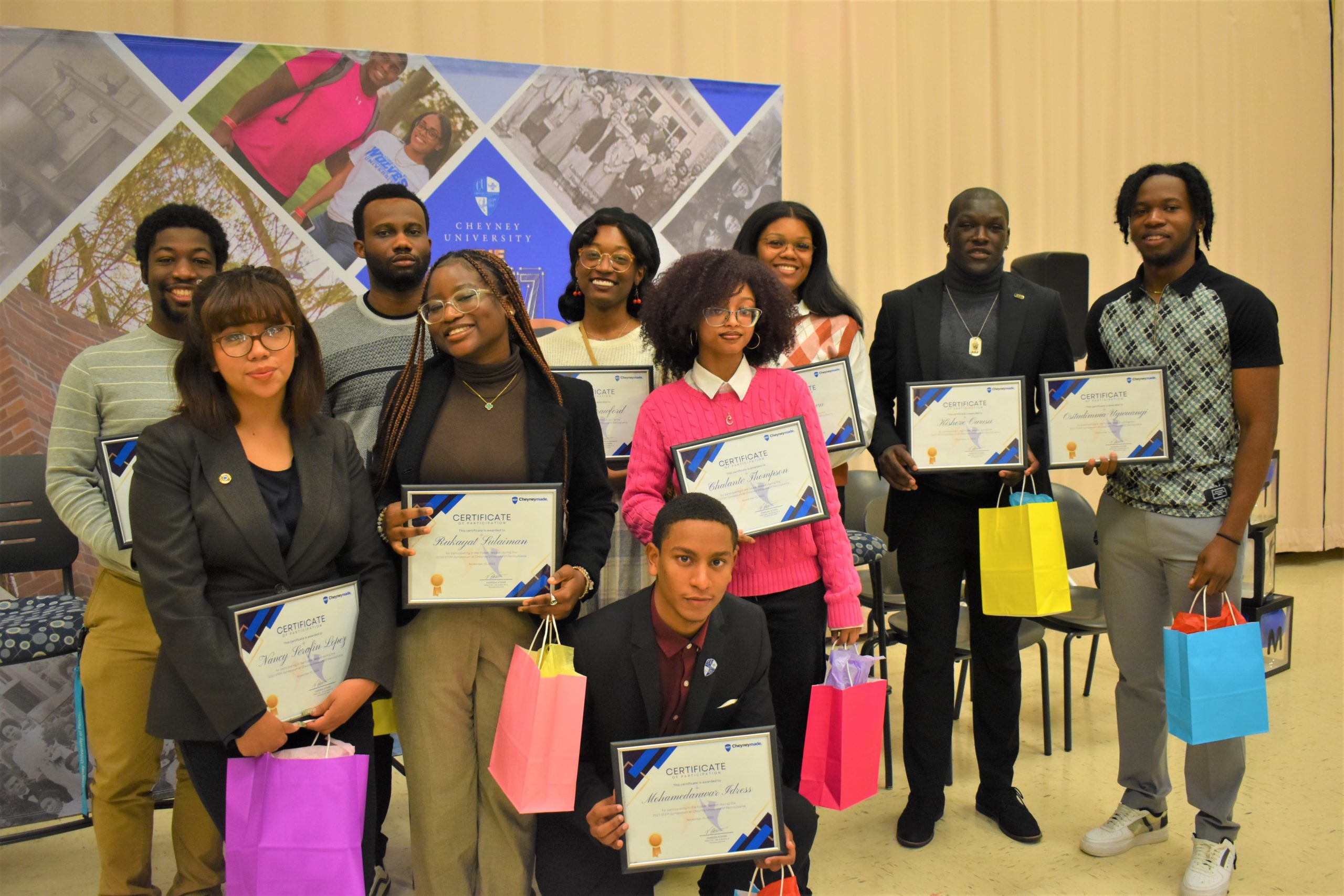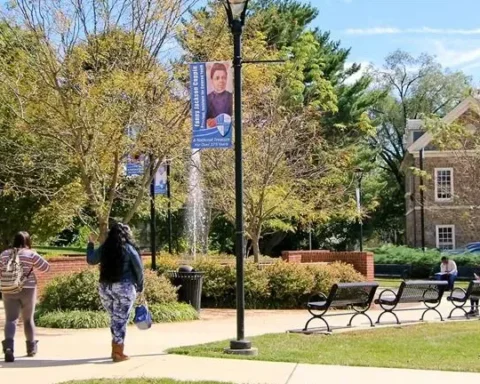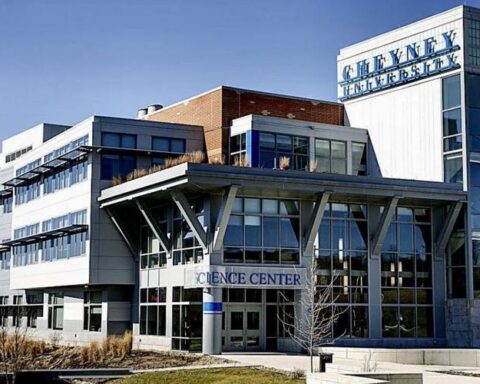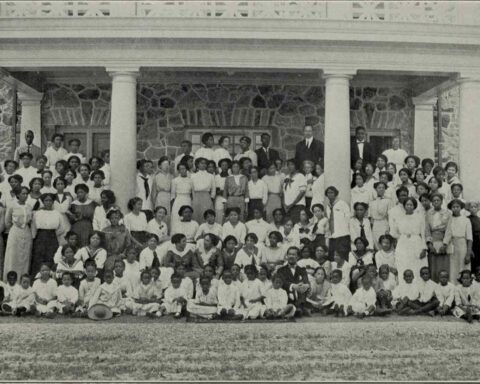Courtesy of Cheyney University
After a hiatus due to COVID-19, Cheyney University of Pennsylvania hosted its first poster session since 2019 during the first ever STEM Symposium co-sponsored by the Life Science & Technology Hub (LSAT Hub) and the Louis Stokes Alliance for Minority Participation (LSAMP). The STEM Symposium highlighted undergraduate research and internship activities facilitated by the university’s business and institutional partners. Students who are working to become future leaders in Science, Technology, Engineering and Mathematics (STEM) demonstrated that they are thriving in this industry through the poster session and student intern panel.
The two-day symposium also included a STEM Professionals Panel featuring staff representing many of Cheyney’s on-campus partners that are part of the LSAT Hub located in the school’s Science Center and off campus internship hosts. Eleven students created posters to showcase what they learned as they worked alongside STEM professionals and one student created a poster explaining her law internship experience. (a complete list of students and their topics is included below)
The posters were evaluated by faculty, staff, and campus partners on how well they executed the required format, how thorough and concise their explanations were, and how well they were able to explain their work when questioned.
Michael Ikpe’s presentation on his research with T cells while interning at the University of Pennsylvania’s Wherry Lab as a RISE intern in partnership with the Parker Institute for Immunotherapy (PICI) earned him the first-place honor. Ikpe, a Senior Biology, Pre-Med major, is also active with Cheyney’s LSAT Hub.
He described his internship at the Wherry Lab as one of the most exciting, fulfilling experiences he has ever encountered.
“I was looking for an opportunity like an internship that could help my career path into the medical field,” said Ikpe. “When I started working in the lab, I had very little knowledge of research and immunology, but my mentors were more than happy to educate and train me during my internship.”
Ikpe’s research focused on T cell exhaustion which is a consequence of cancer. He created exhausted CD8 T cells in a dish by mimicking the conditions that can naturally cause exhaustion in the body of an organism.
“I intend to continue my research to dive deeper into the exhausted T cells to determine what transcription factors drive their various cytokine and chemokine productions,” said Ikpe. “I want to pursue a career in the medical field and understand the immune system, which is the body’s main defense against pathogens, helping give a better perspective on how medicine works in general.”
Cheyney partners with several companies that provide paid, hands-on internship opportunities. Cheyney students work directly with these companies, applying classroom learning to invaluable real-world experience in their respective industries. The student intern panel provided aspiring interns with insight and advice from upperclassmen who shared lessons learned from their experiences and offered tips for those seeking to follow in their footsteps. STEM professionals spoke to students about careers where they can apply their newly acquired skills and the opportunities their companies offer for internships, research, and jobs. The professionals represented industries such as healthcare, finance, research, education, and scientific instrumentation.
“As we spoke more with students about their experiences, we realized that they had learned some very important lessons, both about themselves and about the fields they were working in,” said Vanessa Atkins, Director of Cheyney’s LSAT Hub. “So, we decided that their peers could benefit from hearing from them and added a student intern panel to the agenda, as well. We wanted to celebrate as many students as possible and acknowledge everyone’s hard work as a closing for the event.”
Ikpe explained that being featured in the symposium was an honor and a bit nerve racking. “As I explained my poster and research to people, I became more comfortable because I really do enjoy talking about science,” he said.
“Coming first at the poster presentation was the icing on the cake and I owe it all to my peers and the judges,” he said. “I hope we inspired a new crop of scientists with the symposium as we need more people of color in science.”
“Opportunities for students to present in forums like this, allow us as faculty to interact more with the students, helping them to understand how to interpret and present data in a professional manner,” explained Dr. Steven Hughes, Professor and Director of Aquaculture Research & Education Laboratory.





